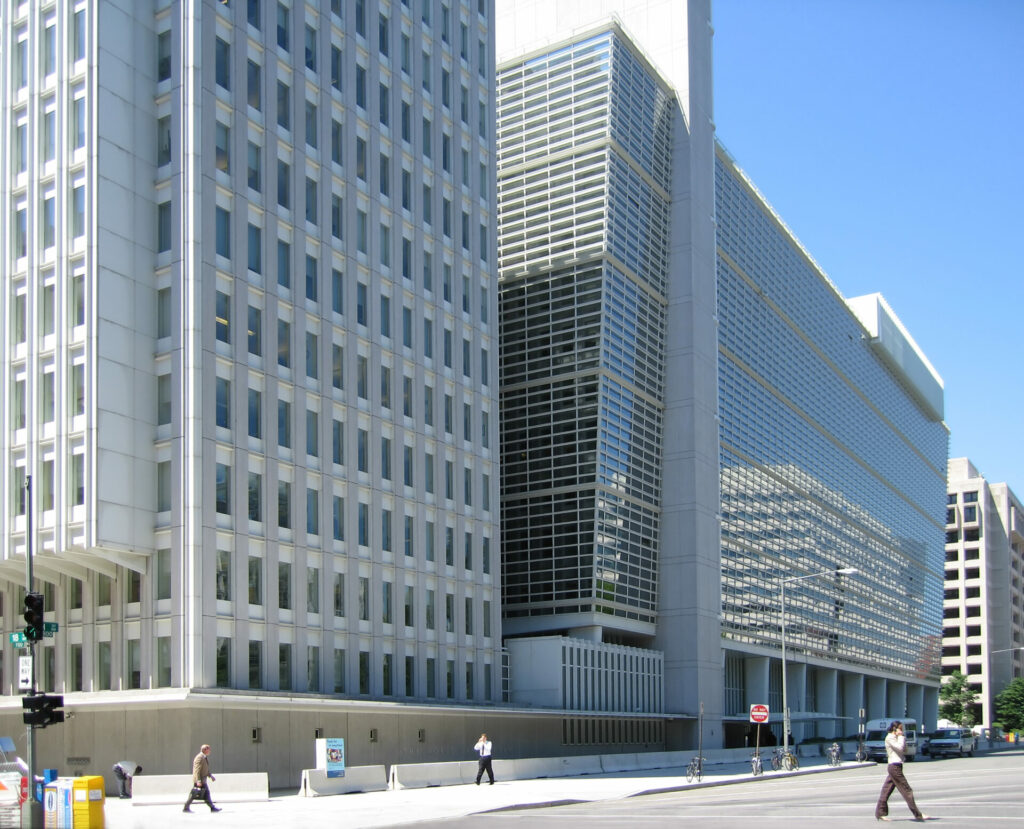The World Bank has warned that the world is "perilously close to falling into recession" and forecast that global GDP will increase a mere 1.7% in 2023, down from the 3% it had predicted in June last year.
In a report published on Tuesday, the Bank noted that soaring inflation, high interest rates, declining investment, and the continuing impact of Russia's war in Ukraine have left the world economy in a "fragile" condition, such that "any new adverse development — such as higher-than-expected inflation, abrupt rises in interest rates to contain it, a resurgence of the Covid-19 pandemic, or escalating geopolitical tensions — could push the global economy into recession."
The Bank also pointed out that its global growth forecast for this year is the lowest since 1991 – apart from 2008 when the world was rocked by the global financial crisis, and 2020 when Covid-19 lockdowns induced a global economic slowdown. It also remarked that, if the global economy were to tip into a recession, it would mark the first time in 80 years that two global recessions had occurred in the same decade.
Growth in the eurozone for this year was forecast at 0% for 2023, a downward revision from the Bank's 1.9% prediction in June, while growth in both China and US were also predicted to be below that of previous forecasts. Perhaps most worryingly of all, the Bank predicted a growth rate of just 1.2% in Sub-Saharan Africa — where 60% of the world's extreme poor live — and noted that such a low rate of growth "could cause poverty rates to rise, not fall".
The Bank concluded that "urgent action is needed to attenuate the risk of global recession", and in particular cautioned central bankers to be aware of the fact that "cross-border spillovers from other monetary authorities' actions may tighten financial conditions more than expected".
Long-term impact
Although the Bank forecast that global growth would rise to 2.7% in 2024, it also predicted that some of the root causes of the global economic malaise are becoming increasing entrenched across the world economy.
In particular, the Bank stated that although inflation will "likely moderate" from 7.6% in 2022 to 5.2% this year, nevertheless "there are signs that underlying inflation pressures could be becoming more persistent".
It added: "This suggests that the negative shocks of the past three years — namely the pandemic, the invasion of Ukraine, and the rapid increase in inflation and associated tightening of monetary policy worldwide — are having a lasting impact on economic prospects."
Related News
- Inflation in Belgium falls, but remains higher than eurozone average
- 'Tough year': IMF predicts half of EU to be in recession in 2023
The President of the World Bank, David Malpass, was especially pessimistic about the current global economic crisis' long-term impact on developing economies.
"The crisis facing development is intensifying as the global growth outlook deteriorates," he said. "Weakness in growth and business investment will compound the already-devastating reversals in education, health, poverty, and infrastructure and the increasing demands from climate change."
The Bank's warnings about the dire state of the global economy were echoed last week by the IMF Managing Director Kristalina Georgieva, who predicted a "tough year, tougher than the year we leave behind" in 2023, and forecast that one-third of the world's economy will be in recession this year, including half of all EU Member States.

